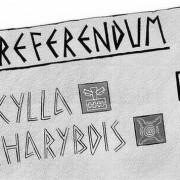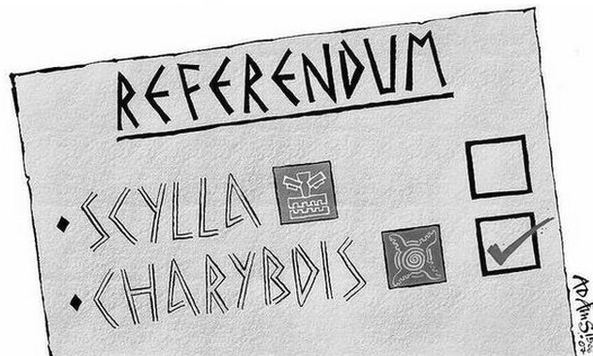MONTHLY BLOG 150, Tribute to the Gracious International City of Geneva – Historic Home of Three Hegemonc Radical Thinkers – and, Additionally, Thronged with Sparrows
If citing, please kindly acknowledge copyright © Penelope J. Corfield (2023)

| Image1 Male House Sparrow in Fine Voice (2023) |
Reflections upon Geneva, prompted by a recent visit (late May 2023): Geneva is a gracious city, situated at the point where the River Rhône rushes headlong out of Lake Geneva en route for its journey to the Mediterranean. The city is full of trees, and the trees are full of sparrows. Their non-stop cheeping, from dawn to dusk, provides an engagingly cheery urban sound-track. It’s almost enough to make visitors forget the eye-wateringly high prices for everything.1 (So costly is this city that many thousands of its work-force live in nearby France and commute to Geneva daily).
Having ruefully noted that point, there is much to celebrate in a city famed for many things – one being its role as the home of three rebellious and controversial Francophone thinkers, whose ideas remain influential to this day.
One was John Calvin (1509-64), born in northern France. In his lifetime, he had a tumultuous relationship with the city. Yet their names are indelibly linked.2 Geneva was the heartland of the radical Protestant movement, known as Calvinism or Presbyterianism. And the Geneva Bible (translated into brisk English in 1560 by William Whittingham and other Calvinist scholars) had major impact across the English-speaking world. In keeping with the Calvinist lack of flamboyance, there are no great physical monuments to Calvin in today’s multi-cultural Geneva.3 Nonetheless, religious legacies are potent. Hence, in the words of one friend who lives locally, ‘In Geneva today, Calvin is everywhere’. Hard to prove – or to disprove. Yet Geneva is undeniably a ‘serious’ city..
Very different in character and intellect was a second great French thinker who moved to Geneva. He was François-Marie Arouet, known universally by his pen-name Voltaire (1694-1778). Born in Paris, he was a prolific controversialist, philosopher, historian, and all-round man of letters. As a fierce advocate for civil liberties and pungent critic of religious intolerance, Voltaire was not an easy ‘subject’ for absolute monarchs to stomach.
So when, in 1754, he was banned by Louis XV of France, Voltaire moved across the border into republican Geneva. There he purchased a fine city mansion, Les Délices. And, since his relationship with the city government was not always easy, Voltaire also established a grand country abode just outside Geneva at Ferney. From this dual base, he flourished as a celebrity intellectual.4 And that international role is celebrated today by the city of Geneva, which maintains the Institut et Musée Voltaire. And this body is housed in the mansion Les Délices itself.5 So visitors can enjoy its impressive library and memorabilia at the very spot where the great thinker planted his banner of intellectual independence. Voltaire chose Geneva and the city today reciprocates the choice.
The third radical thinker, meanwhile, was Jean-Jacques Rousseau (1712-78), the Genevan-born son of a ‘middling-sort’ watch-maker. The young Rousseau had a troubled childhood and, later, spent long periods away from the city. Nonetheless, he often signed his writings as a ‘Citizen of Geneva’. And he won fame as an original educationalist and democratic theorist.6 Among other things, he held that all religions were equally valid if they taught people to live morally as good citizens – a view that outraged Calvinist and Catholic ministers alike – and caused Rousseau’s books to be banned in his native Geneva. At that point, Voltaire offered Rousseau his chateau at Ferney as a refuge (their own intellectual disagreements notwithstanding). But the reply was negative.
Instead, Rousseau embraced a wandering life, in which he often fell out with former friends. He saw himself as a ‘solitary walker’, though his reputation and influence continued to grow. Indeed, in 1794 – sixteen years after his death – Rousseau’s remains were re-interred in the Pantheon at Paris. Revolutionary France thus saluted him posthumously as a prophet of democracy. Geneva meanwhile has a fine statue to Rousseau (installed 1835) on an islet in Lake Geneva. Some city streets are also named after his most famous works. And the Musée Rousseau et Littérature (located in his birth-place in the old city) offers an immersive tour.7 Geneva has long welcomed back its wandering son.
None of these three original thinkers, however, had an easy relationship with the city authorities. All three were too independent to be easily assimilated – and too strong-minded to be intimidated. Collectively, they indicated the power of untrammelled communication: Calvin teaching from the pulpit; Voltaire and Rousseau via print – that modern free-range pulpit – which they used with great versatility.
Geneva’s open society and governance greatly aided all three. The city was then – as it remains – an international communications hub, not subject to close censorship by an autocratic ruler nor to close identification with any one great power. It was a logical venue, later on, for the global headquarters of the new League of Nations (1920-46). Today Geneva continues to flourish, hosting many international enterprises and simultaneously safeguarding its great history but without fussing or fawning. And the cheery sparrows chirp ceaselessly …
ENDNOTES:
1 But one very helpful feature for visitors, who are booked into approved Genevan hotels, is the free Transport Card, issued by the City of Geneva, which is valid on all buses, trams, and shuttle-boats within the city canton.
2 See R.M. Kingdom, Reforming Geneva: Discipline, Faith and Anger in Calvin’s Geneva (Geneva, 2012); K. Maag, Lifting Hearts to the Lord: Worship with John Calvin in Sixteenth-Century Geneva (Grand Rapids, Mich., 2016).
3 But a statue of Calvin does feature on the ‘Reformation Wall’ (Monument International de la Réformation), located in the grounds of Geneva University. It was constructed in 1906, to commemorate the 400th anniversary of Calvin’s birth and the 350th anniversary of the University’s foundation by Calvin: see en.wikipedia.org/wiki/Reformation_Wall.
4 For context, see R. Pearson, Voltaire Almighty: A Life in Pursuit of Freedom (New York, 2005); and I. Davidson, Voltaire: A Life (London 2010).
5 F. Borda d’Agua and F. Jacob, A Short History of Les Délices: From the Property of St Jean to the Institut et Musée Voltaire (Geneva, 2013).
6 H. Rosenblatt, Rousseau and Geneva: From the First Discourse to the Social Contract, 1749-62 (Cambridge, 1997); L. Damrosch, Jean-Jacques Rousseau: Restless Genius (Boston, Mass., 2005); L.D. Cooper, Dreaming of Justice, Waking to Wisdom: Rousseau’s Philosophic Life (Chicago, 2023).
7 See https://www.geneve.com/en/attractions/maison-rousseau-et-litterature-mrl.
For further discussion, see Twitter
To read other discussion-points, please click here
To download Monthly Blog 150 please click here



